Kenyan Senate and National Assembly committee report details hidden aspects of upcoming multinational mission to Haiti
The report prepared by a bicameral committee of the Kenyan parliament, voted through Nov. 17, 2023, authorizing the deployment of police officers from that country to Haiti, offers key information on preparations for the mission, approved by the United Nations last October.
The document of over 80 pages obtained by AyiboPost reflects non-public discussions carried out by the actors, the objective of the mission in Haiti, the result of the field evaluation report, and the cost of the deployment.
According to the committee, the multinational mission must support the Haitian National Police (PNH) and help restore law and order, conduct operations with the institution, help maintain key infrastructure and roads, and enable secure access for humanitarian aid.
The PNH requested “at least 2,500” personnel from different countries to assist it, according to the document. Kenya is promising 1,000 police officers, and other countries on the continent such as Senegal, Burundi and Chad are expected to take part in the initiative. It is unclear whether the minimum number of personnel requested by the national police is met.
Read also : Intervention étrangère : les USA disent préparer un «support significatif»
On Aug. 18, 2023, a “team” from several state institutions in Kenya received a security briefing from the UN missions of Kenya, the United States and other friends of Haiti such as Canada, the European Union, or Rwanda.
The team was informed during the briefing that « the Court of Cassation [of Haiti] is inadequately constituted, the justice system is corrupt, judges are threatened by gangs, court documents are not maintained, and accountability mechanisms are weak.”
Five months before this briefing, Ariel Henry’s government issued a decree in the official newspaper Le Moniteur to appoint eight judges to the Court of Cassation, the highest judicial body in the country. On Nov. 22, 2022, the Prime Minister had already installed a president to the court.
According to Article 175 of the 1987 Constitution, judges at the Court of Cassation are appointed for ten years by the President of the Republic from a list of three people per seat submitted by the Senate.
The PNH requests “at least 2,500” personnel from different countries to assist it, according to the document. Kenya is promising 1,000 police officers, and other countries on the continent such as Senegal, Burundi and Chad are expected to take part in the initiative.
The legality of certain actions by Ariel Henry as head of state, such as the appointment of judges to functionalize the Court of Cassation, is debated in legal circles.
According to information communicated to Kenyans by participants in the briefing, Ariel Henry serves as provisional President of Haiti, a title that the Prime Minister does not claim publicly.
Kenya requests that all resources be available before deployment.
A budget in the document obtained by AyiboPost brings the expenses to be incurred to $241 million, notably for training, administrative support, purchase of equipment, etc. AyiboPost’s calculations, based on the six expenditure lines mentioned in the document, come to $300 million.
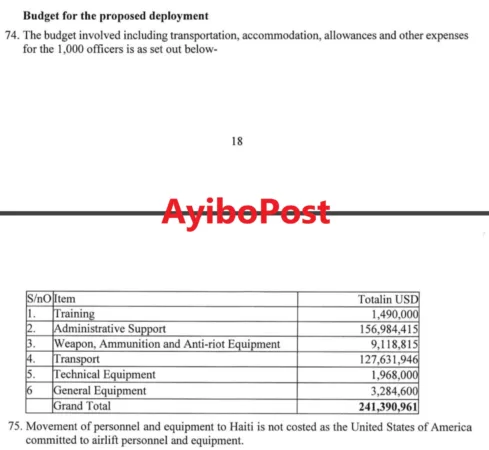
Kenya is already spending on mission staff. This money must be reimbursed by the United Nations, according to the document.
Download the report of the commission bringing together members of the Senate and the National Assembly of Kenya here.
According to the committee, the United States promises to transport personnel and equipment from Kenya to Haiti.
The text indicates that the United Nations is responsible for insuring Kenyan police officers deployed in Haiti. Therefore, compensation for any damage suffered by the officers is the responsibility of the United Nations.
According to information communicated to Kenyans by participants in the briefing, Ariel Henry serves as the provisional President of Haiti, a title that the Prime Minister does not claim publicly.
The National Assembly’s decision provides for the establishment of a strategic coordinating body that will liaise, receive and compile quarterly reports from Kenya Police units, as an assessment and monitoring of the progress and effectiveness of the mission.
According to the committee, these reports will help secure Kenya’s national interests to ensure its socio-economic priorities.
Ekuru Aukot, the constitutionalist who is leading the legal action against the deployment, reveals to AyiboPost that should the High Court of Justice authorize the departure of the police officers on Jan. 26, 2024, he will appeal to contest the decision at the Court of Appeal, and possibly to the Supreme Court, which will potentially further delay the mission. “Since we have filed a lawsuit against the Minister of the Interior, if the deployment continues, we will cite him for contempt of court.”
According to jurist Eric Theuri, President of the Law Society of Kenya (LSK) interviewed by AyiboPost, “Parliament’s [authorization] is a contempt of the court [which hears challenges to the mission]. Under the Constitution of Kenya, parliament has no legal mandate to approve such a deployment.”
Nearly 70% of Haitians would be in favor of deploying an international force to combat insecurity in Haiti, according to a survey released in Feb. 2023 by the Diagnostic Development Group, funded by the Alliance for Risk Management and Continuity Activities (AGERCA, a group of employers’ associations).
A budget in the document brings the expenses to be incurred to $241 million, notably for training, administrative support, purchase of equipment, etc.
Contacted by AyiboPost, Silas Nyanchwani, a Kenyan writer, expressed his opposition to the deployment of his countrymen to Haiti. “It’s a project between the Kenyan government and the American government,” says the former Political Science student at the University of Nairobi. “Kenya has no business in Haiti and this country has not threatened us,” he maintains.
Since 1989, Kenyan Police have taken part in at least ten peacekeeping missions.
“In Haiti, it will be different since it will be a peace-building mission,” Tony Moturi, legal advisor to an opposition party, told AyiboPost.
According to the lawyer, the language barrier – because Kenyans speak Swahili and English – will pose a problem. “How are [these police officers] going to work?” asks Tony Moturi, recalling that these agents “don’t even know the terrain.”
By Jérôme Wendy Norestyl & Widlore Mérancourt
This article has been updated with a quote from Ekuru Aukot. 8:48 AM, November 18, 2023.
Cover image: Entrance of the Kenyan National Assembly| © Kevin MIDIGO / AFP
Stay in touch with AyiboPost through :
► Our WhatsApp channel : click here
► Our WhatsApp Community : click here
► Our Telegram canal : click here

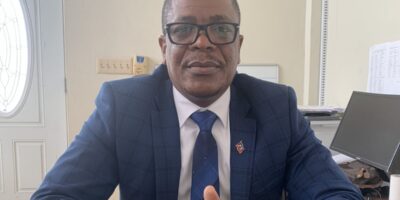

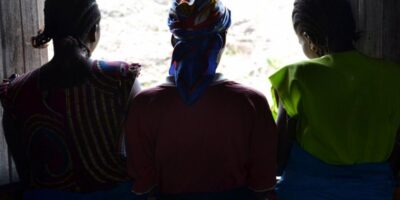
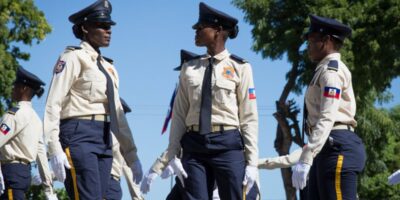

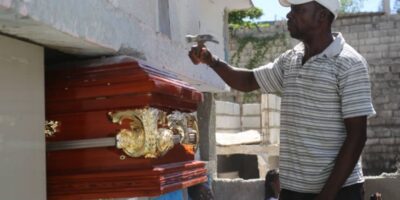
Comments